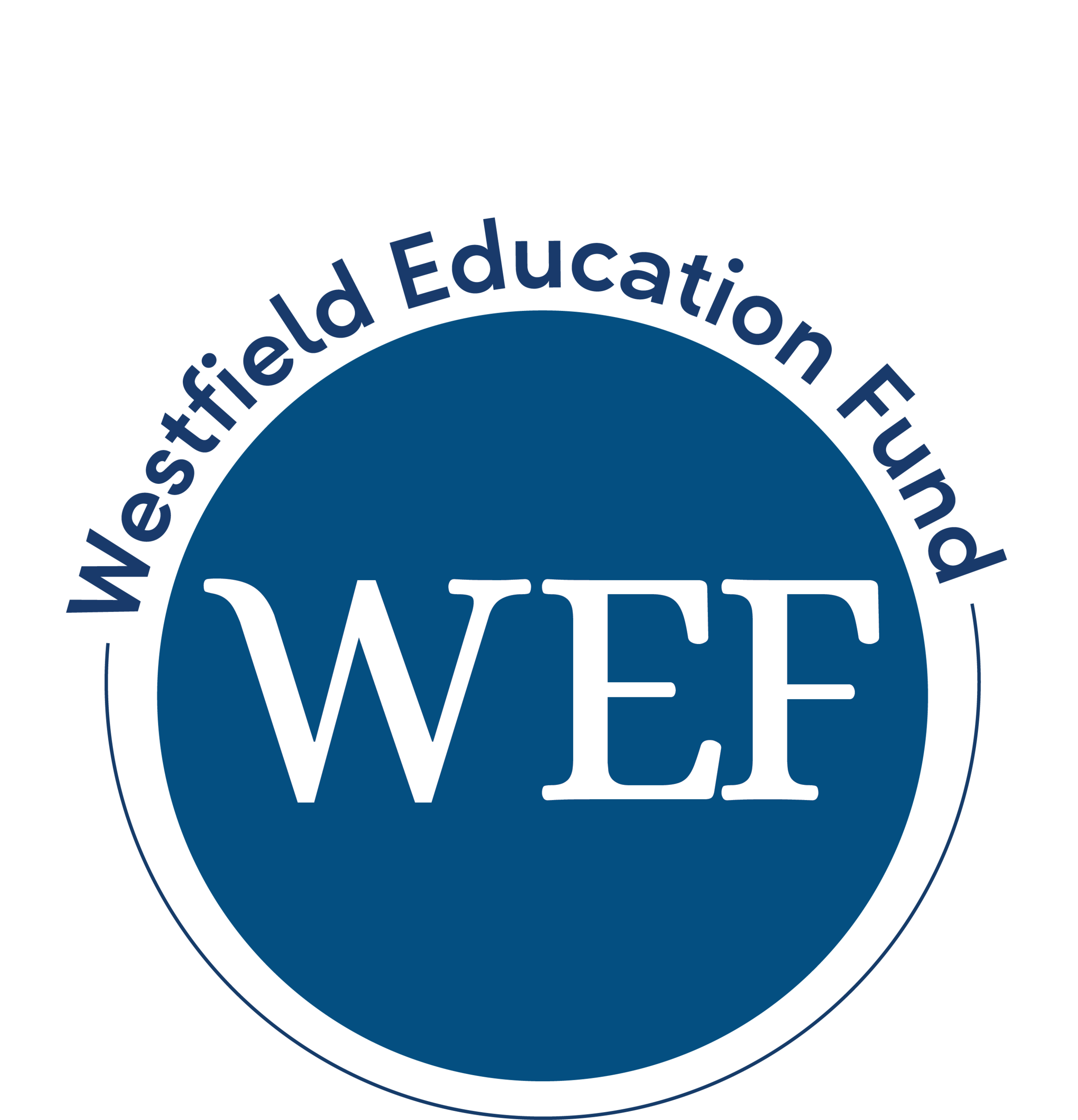Racial Literacy Initiative
During the 2020 – 2021 school year, WEF partnered with the Westfield School District to provide nearly $40,000 to support the district’s important new educational initiative aimed at improving discussions of race in classrooms across the district. This included funding to support:
PROFESSIONAL DEVELOPMENT
In-depth professional development for administrators, supervisors, and K-12 teachers, including instructional resources, expert-led workshops, and ongoing support to ensure that developmentally appropriate lessons and conversations about racial literacy are embedded into the curriculum at every grade level
COMMUNITY LEARNING
Community learning nights at the elementary, intermediate, and high school levels to engage parents in these important conversations in partnership with our schools
CLASSROOM MATERIALS
Diverse and culturally responsive texts for all K-5 classrooms as part of their racial literacy work
Education Consultant David Schwartz led teachers in a professional development session with to provide them with culturally responsive teaching strategies.
“As a veteran teacher of 21 years in the district, I am moderating important discussions among students that have never before occurred in my classroom.”
Communications Consultant Melle Powers led parents in a Community Learning Night focused on how to have age-appropriate conversations with kids about race.
“We are moving to become more culturally responsive human beings and teachers. We are learning that recognizing and celebrating our differences is just the beginning of culturally responsive teaching, and we’ve reflected to make sure we do not prioritize our own comfort over change.”
As of June 2021, Westfield Schools have been able to accomplish the following initiatives, leveraging the funding of the WEF grant:
Professional Training Sessions for Teachers in K-5
In the fall of 2020, educators in the elementary schools across town participated in a professional development session with Education Consultant David Schwartz to provide them with culturally responsive teaching strategies aimed at enhancing student engagement and creating a respectful community of learners.
Schwartz, a former social studies supervisor and teacher, previously worked as a senior program associate for “Facing History and Ourselves,” a program for students and educators that addresses racism, antisemitism, and prejudice at pivotal moments in history.
“David’s workshop on racial literacy challenged K-5 teachers to approach this topic from two perspectives; as adult learners and as educators. They were also asked to reflect on their work with students,” says K-12 Supervisor of Social Studies Andrea Brennan. “The workshop was a starting point to examine our implicit bias, the danger of a single story and how we can begin to envision our classrooms as places that incorporate (more fully) many voices, stories, and perspectives.”
Alison Schreier, who is a First Grade Teacher at Wilson Elementary School and a Racial Literacy Ambassador for the district, added, “The professional development session was wonderful because it offered my colleagues and me an opportunity to reflect upon our own experiences in school and how they create the lens through which we teach. It also exposed us to the work of various educators with regard to equality vs. equity. I think the conversations broke the ice for teachers to feel more comfortable talking about race and privilege.”
Professional Development for English and Social Studies Teachers in Grades 6-12
Administrator-facilitated sessions were provided to English and Social Studies teachers in grades 6-12. During these meetings teachers discussed common book reads (Waking Up White and Tell Me Who You Are) and then shared ideas about the ways in which this work has made its way into their classrooms.
“In conjunction with the Social Studies department, we have had many rich discussions based on Waking Up White and Tell Me Who You Are,” said Kimberly Swenson, a Social Studies teacher at Edison Intermediate School. “Waking Up White inspired deep reflection and gave us a common vocabulary for discussing racial inequality. While Tell Me Who You Are, through its poignant vignettes, allowed us a window into the way people across the country view race. Both titles sparked compelling and necessary conversations among the faculty.”
Community Night: Talking to Children About Race
Parents and caregivers were invited to take part in a virtual gathering in April 2021 to learn from two external experts about how to have age-appropriate conversations with kids about race. Communications Consultant Melle Powers and Educational Consultant Melissa Shaw guided participants through a series of verbal exercises aimed at helping them delve into their own understanding of race and issues surrounding race. They also advised adults to examine their own comfort level in discussing issues of race as they prepare to talk to children.
“Don’t avoid talking about it,” said Powers who leads training sessions on diversity and inclusion for educators, corporations, and other organizations. “Be clear, direct, and factual. Encourage questions and don’t worry if you can’t answer them.”
For middle school students and older, “don’t wait for your child to initiate the conversation about what happened in the news,” said Powers, adding that, in this digital age, older students are quick to hear the news on social media and elsewhere. “You don’t want them to hear it from their friends.”
The co-facilitators also focused on storytelling, including the stories that exist behind those that are told societally, and shared age-appropriate books, movies, and materials to help adults broach the subject with young people. These resources and others are posted on the Westfield Public School District’s “Racial Literacy” page under “Family Resources” at www.westfieldnjk12.org.
“I loved the focus on storytelling and the importance of sharing stories from different perspectives with children,” said WEF president Nicole Breslow. “The value of having a more diverse set of books in classrooms could not have been clearer.”
Ongoing Enhancement of Classroom Libraries with Diverse and Culturally Responsive Texts
Classroom libraries in Westfield Schools have been expanded with additional books and other materials that provide a richer and more diverse experience surrounding themes of inclusiveness, diversity, fairness, and equality. These include titles such as Front Desk, Save Me A Seat, One Green Apple and Maniac Magee.
For Mary Montes, First Grade teacher at Tamaques and Racial Literacy Ambassador, the new texts in her classroom have been a welcome change. “We’re starting to explore books that are more representative of different cultures and backgrounds. Previously, students weren’t seeing themselves in characters in the books we were reading, and it made it hard for them to connect with the characters.
“From poetry to protest songs to powerful American rhetoric, we have consciously expanded the supplemental texts and media used throughout our units of study to promote students’ racial literacy skills. From discussions early in the year familiarizing students with language and concepts in order to discuss race, until the end of the year, our goal remains to represent the diversity of the American experience to our students.”


